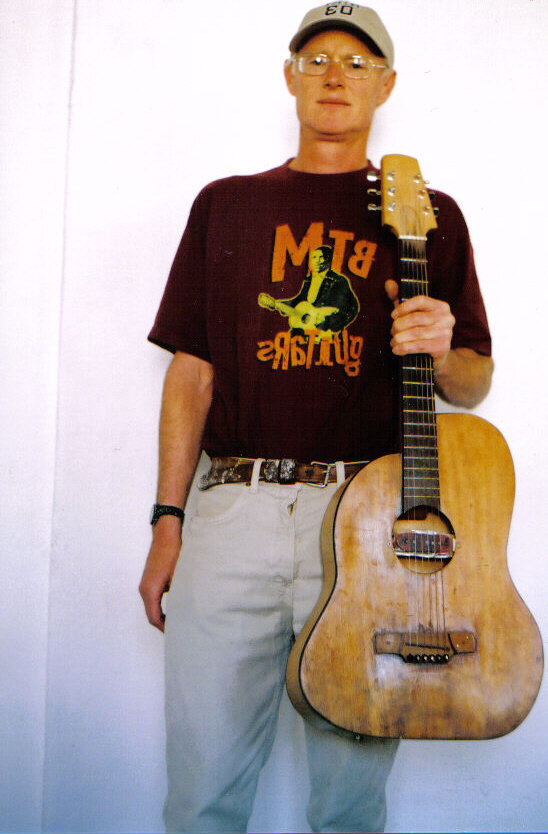Dan Reeder is renowned artist and musician who has spent the past three decades creating a unique blend of folk, art, and DIY innovation from his home in Nuremberg, Germany. Born in Louisiana and raised in California, Reeder’s work spans music, visual art, and homemade instruments—everything from steel-string guitars and banjos to PVC trombones.
Reeder is an anomaly in more ways than one. Born in 1954 Lafayette, Louisiana, he moved to California at six, where he would eventually study art. He began his creative career at Chapman College, eventually progressing to California State Fullerton, where he met his wife. When her visa expired, Reeder, with just one semester left of university, decided to move to Nuremberg, Germany. Even though his intentions were to finish out his degree in California after a six month stay, Nuremberg won Reeder over and he never returned to school. Since his move over 30 years ago, Reeder has lived a full life as an esteemed visual artist. He got married and raised three children. He has won various visual art awards, participated in numerous exhibitions, led art seminars, and took on a visiting professorship at the Akademie der Bildenden Künste (aka, Germany’s Academy of Fine Arts). He published an overview of his work in 2012, Art Pussies Fear This Book. In between all of his artistic accolades, sometime in the early 2000’s, Reeder sent a burned CD to John Prine. Prine listened -- and signed Reeder to his label, Oh Boy Records.
Dan’s latest album, Smithereens, released in the fall of 2024, continues to expand his sound, blending his signature wit and vulnerability with lush, expansive arrangements. This album marks a new chapter in his career, following his previous works, including Dan Reeder (2004), Sweetheart (2005), This New Century (2009), and Every Which Way (2020), all of which have garnered critical acclaim and a dedicated fanbase.
Prior to a brief tour in 2024, Reeder hadn’t played on his home soil in fifteen years, preferring to create quietly from a distance—far from the spotlight but never truly unseen. He now performs alongside his daughter, Peggy Reeder, whose harmonies and the pair’s charming, humorous family banter are sure to captivate any audience.
With a sound that combines the similar warm, weathered voice of Ted Lucas with playful, quirky lyrics, Reeder is an outsider artist who marches to the beat of his own drum.


